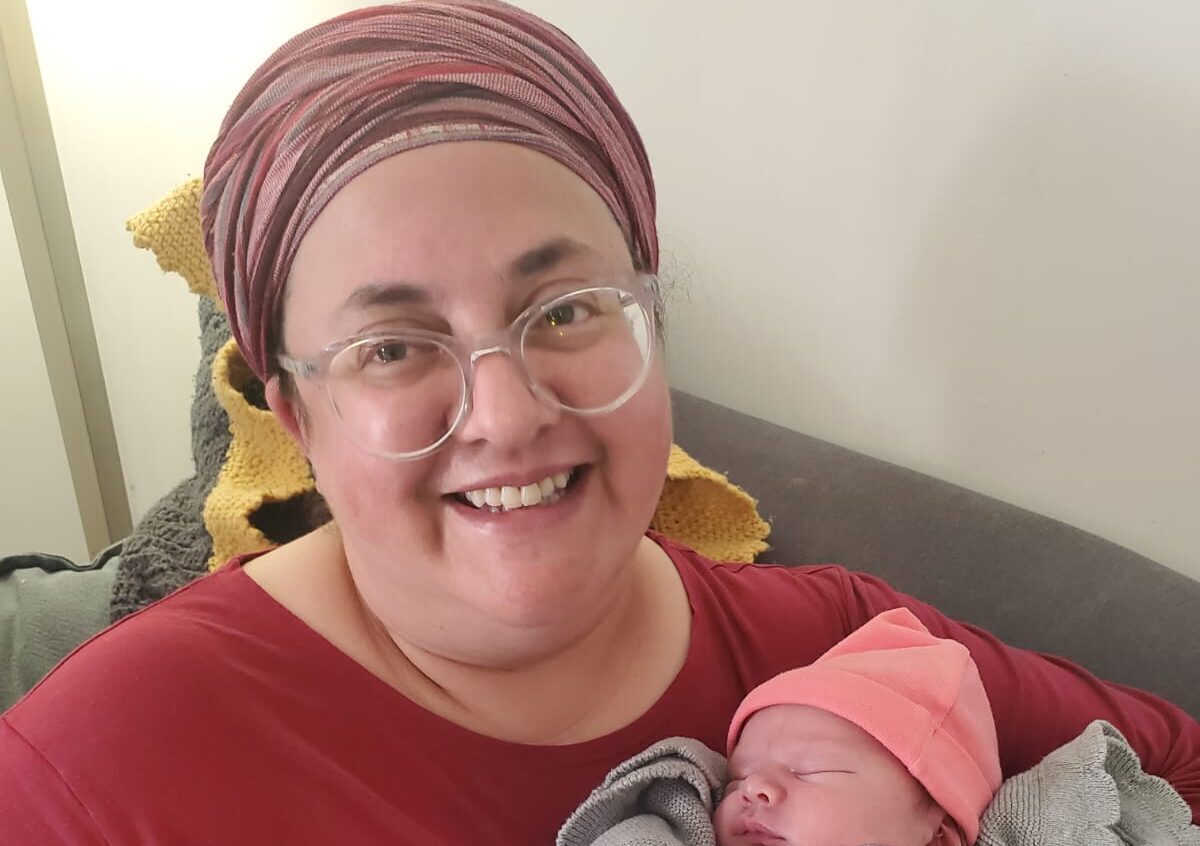The CJN is publishing dispatches from Canadians currently in Israel. Submissions can be sent for consideration to Lila Sarick at [email protected].
At the beginning of this war, I registered with the Canadian Embassy in Israel. After a decade, I thought it might be a smart time to let them know we were here.
After that, the emails started pouring in, multiple times a day, warning me to get out, asking if I needed assistance, sharing details about flights. Reminding me to be ready to leave on a moment’s notice.
Cue head-exploding emoji.
Now, in case you don’t know me, I’m not part of Prime Minister Benjamin Netanyahu’s war cabinet. I’m not high up in the IDF. I am a very small, very invisible, let’s say middle-aged mother and grandmother sitting at a laptop in Nowheresville, northern Israel. I grew up in Toronto and arrived with a tenuous grasp of Israel’s history and geography, let alone its politics or military preparedness.
And now I had to decide, not only for myself, but for my children and grandchildren—were we safe in Israel? I didn’t know much more than folks back in Toronto. Slightly more, because I can read Hebrew media. But not nearly enough to make that call.
I was grateful for those emails, grateful to have another passport, but it was scary, too. Most Israelis didn’t have a choice. As the classic Israeli song goes, “Ein li eretz acheret” – I have no other land.
Not me. I did have another land. Far away and pretty cold but definitely quiet and peaceful. So I was on the fence; most Canadians I know were. Should we stay? Should we go? Having to make that decision was terrifying.
My grandparents met in Toronto and got married between world wars. Afterwards, they travelled down to New York to meet my great-grandfather, my zayde’s father, who’d sailed from Poland to meet his son’s new wife. He wouldn’t stay; he wouldn’t bring the family. My bubby said he told her, “In America, even the streets are treif.” So after that meeting, he sailed right on back to Poland, where he became one more record in Yad Vashem’s database of murdered Jews.
Cue facepalm emoji.
I couldn’t help thinking—is that me? Will my descendants facepalm at the thought of me typing away complacently, half-an-hour from the Lebanon border, as Iran chortles and brews its nukes?
Finally, I caved. The pressure was killing me. Canada had a flight and I said I might be interested. They emailed back quickly with a few questions about who’d be travelling. And… I never responded.
A few days later, the window closed. The boat had sailed, so to speak. (Americans got to go on an actual boat, to Cyprus). The last Canadian flight had flown. And I’m still here.
Sometime after my grandparents’ wedding, my father was born. Growing up beneath the weight of a traumatic millennium in Poland, he was paranoid, to say the least. He saw antisemites under every rock and behind every bush.
And I’d laugh. I’d say, “Daddy, this is Canada.” At Christmas, I’d see lights and Santas and Winter White Chocolate at Baskin-Robbins and he’d reminisce about how Poles used to come after us with dogs.
Not that he was a grim person. He was pretty cheerful about it all. Have you ever heard the song “Oyfn Pripitchek”? The words are grim and resigned: “When you grow weary and burdened with exile.”
It actually says “golus shlepn,” which seems perfect—hauling ourselves around from one exile to another. But the song isn’t grim, it’s haunting and lovely. Especially my sister Abigail Lapell’s version from her brand-new album, Lullabies:
My father was like that. Cheerfully resigned to the shlep. And I thought it was hilarious. I seriously thought we were past all that. Beyond all wars and unpleasantness, building one big and gorgeous multicultural mosaic.
But as much as I loved Canada, it started to feel more and more like golus—a wonderful stopping point on our way to where we’re meant to be. A century-long vacation, if you will. A century in which, I started to realize, we hadn’t really solved all our problems.
I didn’t move because of antisemitism. I moved because it’s so much easier to have a full and meaningful Jewish life in Israel, period. It’s allowed me to flourish, and it’s also allowed me to look back across the ocean with honesty and realize that, while Canada tolerates its Jews nicely and embraces us as long as we behave and don’t call too much attention to ourselves, it was never home.
My father died before I moved to Israel. But if I could have him back for a minute, just a minute, I’d hug him, I’d cry, and I’d say, “You were right.” Just that.
Throughout this war, watching Canadians celebrate murderous antisemitism at rallies and in the streets, seeing popular support for the Hamas cause within unions and universities, hearing Justin Trudeau lecturing Israel to “exercise maximum restraint” as if, without coaching, he doesn’t trust Jews to morally conduct their own war… well, none of it has come as a big surprise.
Because it was never home. But I’m home now.
Ein li eretz acheret.
Jennifer Tzivia MacLeod is a Canadian writer who moved to northern Israel in 2013.







